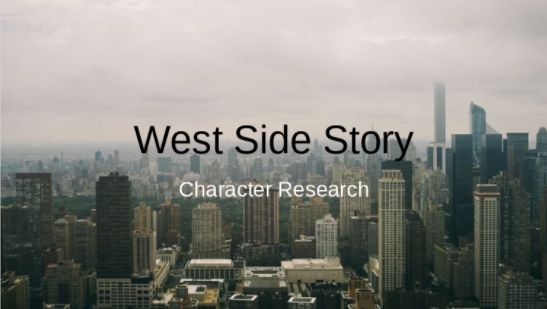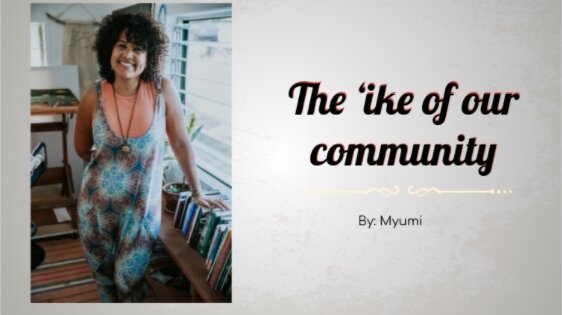
Communicating Powerfully
Dolphins use echolocation to communicate
with each other underwater.
My Understanding of the Skill
Communicating Powerfully means to speak, show, or express something so that others can understand and are listening to you. It also means making sure your voice is clear and that others can hear you. It’s important to pay attention to your audience’s body language because then you can interpret whether or not they are interested in what you are saying. For example, if you are going on and on about one subject and people are yawning, then you know it's time to move on. You need to engage your audience to get your idea across to them.
To Communicate Powerfully when you are presenting something, you should choose a platform that helps the audience understand your topic better. For example, showing a video or slideshow while you are presenting can make your presentation more interesting and capture your audience’s attention. It’s important for others to show they’ve been listening, so they can not only give you feedback, but help to improve your communication for next time. Even when you are having a normal conversation with someone, it’s important to Communicate Powerfully so they can understand you. Talking clearly, making eye contact, and body language (sitting up straight and facing the person). Also, communication doesn’t just have to be through speaking. Communication occurs in many forms and you can select many mediums to convey a message to your audience. For example, your body language in dance or acting, musical beats, and even your choices of color and organization in artwork. These can all be used to transfer information or an emotion to your audience.
A way that I Communicate Powerfully in my life is talking clearly and loudly in my school and classroom, so others can hear me and understand what I am saying. Especially in these times of the COVID-19 pandemic; it’s hard to hear others with a mask, so it’s important to talk loudly. Another way I incorporate this skill into my life is through making presentations that are easy to read, look at, and understand. For example, this presentation about the musical West Side Story that I created in art class this year. I spent extra time making sure that I was Communicating Powerfully by making my slides easy to read and organizing the colors and pictures. For example, I sized the pictures so I could fit ten pictures on one slide, and added a label above each one so the audience knew what the image was. I also made sure my images were clear, and easy to look at.
An example of not Communicating Powerfully would be talking quietly, being shy, not making eye contact, and not facing the audience while you are talking to people or presenting. Or when you are having a normal conversation with a family member, teacher, or friend and you don’t look at them, or face them to show that you are listening would be an example of not Communicating Powerfully. When you aren’t Communicating Powerfully it can affect people’s understanding of what you are saying, or people could think you are being rude. This could affect the person’s interpretation of you, and could possibly make them not want to communicate with you anymore. For example, if I’m trying to share something with someone, and they aren’t paying attention to me, I would probably find someone else to talk to.
This is an important skill to have in the future because eventually when I get a job, I’m going to need to Communicate Powerfully with my co-workers or my boss to get things done. For example, if I’m asking for a raise from my boss, I will need to Communicate Powerfully by speaking respectfully so I don’t sound rude. Your tone while speaking is important because if you have a tone that sounds negative in any way, people could take it the wrong way. So if I sounded like I was being rude my boss most likely wouldn’t give me a raise because they would feel disrespected. It’s a really important skill to have in the real world because it will help you get really far if you have good communication skills. For example, if you are proposing a project to a company, it's super important to use this skill.
My Growth in the Skill
When I first heard about this skill in 7th grade, I thought Communicating Powerfully meant to speak loudly for others to understand. I’m not a shy person, and I wasn’t afraid to speak loudly for others to understand. When I used this skill, I mostly used it in the classroom by talking clearly so others could understand me. Though I didn’t pay much attention to it because I thought it was easy, and I incorporated other skills, like Managing Effectively more into my life.
Now as an 8th grader, I’ve learned that it means a lot more than just to speak loudly. Not only should you speak clearly for others to understand, but it’s important to show others that you are listening to them by using polite body language (facing towards the person, nodding when you agree with them, etc), making eye contact, and being respectful by not interrupting them or talking over them. It also means making sure others can understand your work. If I’m making a slideshow, I take into account every detail, even the colors I’m using. Everything is important, the style of font you are using, the colors, backgrounds, and mostly what your message is saying. If your message is something that could possibly untrue, or something that could offend others, then it’s important to change those things to communicate your message better. A piece of this skill that I use and think is important, is paying attention to what your audience thinks. You can read a lot about what people are feeling based on their expressions and body language. When presenting a project, I personally want my audience to be interested in what I’m saying, and I usually like to talk in an exciting voice. Instead of sounding dull or boring, I try to talk in a tone that will make people more interested in my topic. For example, you could introduce a topic like “Hi, today I’m talking about clouds.” or you could say “Hi everyone! Today I’m going to be talking all about the amazing different types of clouds, and their patterns!”. This is an example of me paying attention to my audiences’ needs. While Communicating Powerfully it’s also important to be a participative audience. This could mean smiling when you like something the speaker says, or asking questions to engage other audience members, or clapping loudly and cheering when they are finished.
I can still continue to grow in this skill by paying attention to others while they are talking, even if they don’t sound exciting. It’s still important to show them the same respect and attention, through listening, eye contact and body language. In my time at SEEQS, I think I have grown a lot in this skill and learned how to communicate better.
My Project
In my 8th grade EQS Ho’okama'āina, our final project of the first semester was to interview a community member of our choice. Our essential question is “How can we be the kama'āina needed to create a better Hawai‘i?” And we interviewed a kama'āina of our choice that we were inspired by, and that we thought we could learn from.
First we learned all about interviewing. We watched a few videos and practiced by interviewing a student in our class. To interview someone it’s important to Communicate Powerfully. Making eye contact, listening to the person, and making sure they understand you are all key parts of conducting an interview. Then we practiced more by interviewing a family member (altitude card here). After all this, our teacher’s chose community members for us to interview. A community member that stood out to me was Kumu Peter from Tau Dance Theatre. This community member caught my attention because I am a dancer, and the topic was very interesting. I had spent time before the interview writing down questions and researching Tau Dance theatre, and when the time came, I knew what to ask and was educated on who Kumu Peter was. Here were my presentation slides for Tau Theatre.
I think this helped me to prepare for my big interview and Communicate Powerfully better because interviewing helps you practice making eye contact, and how to ask the right questions. I think I was Communicating Powerfully in these slides because I used light colors and dark writing so it was easy to read and understand.
In our previous EQS classes, we learned how to successfully conduct an interview. We learned about asking open ended questions, about taking notes, and about asking follow up questions. An open question is a question that gets people talking. You want them to be able to go on and on about something they are passionate about. An example of this would be, what is something you are passionate about or that you feel strongly about? This would let the person speak their mind and be open. Another example would be what was your childhood like? It’s important to take notes so we can remember what we learned and use the knowledge later. Also so we can reference back to it if we want to share the information we learned. It’s also important to do research before your interview so you know what your subject is talking about and where your subject is coming from. It can help you to ask the right questions. This can make your interview stronger because you can ask more detailed and well rounded questions.
All of this prework set us up for a successful interview with our own community member of our choice. I chose to interview my mom’s friend Marian, who is an artist. I had seen her work before, and I thought her work was really interesting and inspiring and I wanted to learn more about it. This interview was a perfect opportunity, and I was very excited.
Since my mom was friends with Marian, I asked my mom more about her work and what type of art she liked to do. My mom told me she was a painter, and that her art was very spiritual. She wanted to bring awareness about spirituality to our community through her art. After doing a bit of research and having a better understanding of Marian’s art, I started to create my questions. This was pretty easy for me, because I already had some questions about her art. I had to make sure I was Communicating Powerfully with my questions and asking open ended questions. Then we set a time for the interview, and I was a bit nervous.
Here are my interview slides. Below are some pictures of my slides.
The interview went really well, and I enjoyed it a lot. I learned so much from Marian, and I definitely want to see more of her work as she continues to paint. I think I was Communicating Powerfully in this interview because I used polite body language throughout the whole time, and I communicated my questions in a way for Marian to understand clearly. I also had to take notes on what she was saying, and I had to balance making eye contact and looking at my computer to take notes. I tried to make eye contact as much as I can so she felt like she was being listened to.
Another part of this project was to take action based on the information we learned. I wanted to create a blog for all artists to share their work with people of all ages. I thought this would be Communicating Powerfully because I could use pictures of the art to express the message of not only Marian, but any artists that wanted to be on my blog. I chose a platform, Wix, because I thought it would best serve my message. Then I created the blog.
How Does My Project Connect to the Skill?
All of the steps of interviewing relate to Communicating Powerfully because you are learning how to successfully communicate to another person, and how to learn something from them. Using your communication skills is a key part of interviewing. For example, if your question isn’t worded in a way for it to make sense to others, then they won’t understand what you are trying to ask. Also, if you didn’t do your research and you thought your interviewee did hip hop instead of jazz, it would be an example of not Communicating Powerfully. That’s why it's important to follow all the steps of conducting an interview. We can use these skills in the real world because if we have to interview someone for work one day, we will need to follow these steps and Communicate Powerfully.
This has helped me grow in this skill because I learned how to ask questions in-depth, and how to learn even more by asking follow-up questions. One of the questions I asked was “What knowledge are you trying to preserve through your art?” and that really opened up the conversation and helped me understand her art better. This question is an example of Communicating Powerfully because it’s an open ended question where I can listen to the speaker and get a long well thought out answer. For example, her response was “Helping to bring more consciousness about life, and about spirituality and wisdom. I help people who often feel separate from the Earth and the universe to remember and connect to the oneness of all things. These individuals, like most human beings, often feel alone, fear, low self-esteem, and other limiting thought processes. My artworks support them to awaken their consciousness and connection to all living things, the Earth, and the entire universe. All types of people are drawn to my art. Those who feel inspired by my work are those who desire a deeper connection and a profound level of healing. My artwork supports people to connect in a deep way to our roots, to realize this deep connection within them, and help them to remember that we are connected to the greater experience of collective universal consciousness. When they connect with my artwork, they feel seen and heard. Their challenges are understood, felt by others, honored, and held. This helps them heal their own struggles within and supports them to develop a stronger relationship with the divine. The way I help them heal is through offering my visionary art paintings as originals, commissioned pieces, and prints. I do this work for the world because it creates more consciousness in our modern human society. I do this work for myself because my entire life I have known that I want to help with the awakening of our collective consciousness. As I paint, I heal myself and I help to heal others.”
This answer gives me a lot to think about, and helps me to communicate with Marian better because now I know more about her and her artwork. She even shared more than what the question was asking and I think this question was a good example of Communicating Powerfully.
I was also Communicating Powerfully with my slideshow because I made my message very clear, and I even added pictures of her art to interest the audience more.
I learned how to communicate better by using good body language, sitting up straight, and making eye contact. If I wasn’t Communicating Powerfully during the interview I might have not paid attention while Marian was talking or been distracted by something at home. Before my interview I set up my area so there weren't any lingering papers or distractions, and I set up my google slides so I could access them and take notes easily. If I didn’t do this it would have an impact because I wouldn’t be paying attention, and I wouldn’t get to take notes which would show as an incomplete assignment.
This interview was successful because I learned so much, and both my interviewee and I enjoyed it. In this interview I learned more about how everything in this world connects to each other.
There was time I wasn’t Communicating Powerfully during this interview because it was very late at night and I got tired, and let my fingers rest from typing for a few minutes. This impacted the interview because I had to ask her to pause so I could keep up with typing, because I’m a slow typer. I think this affected the interview because I lost a few minutes of time to ask questions. I can work on that next time by not stopping when I should be typing. I think a way I could have prevented this from happening would be recording the interview as a backup so I would watch it later and take notes from the video. We set up the interview at a later time because it worked with both of our schedules, but maybe next time we can plan for a different day.
View Other Sustainability Skill Reflections:
Reasoning Analytically
Managing Effectively
Collaborating Productively
Thinking Systemically









